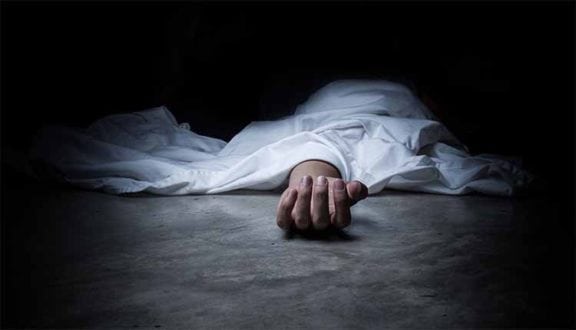Iran-HRM – The torture and cruel mistreatment of detainees and prisoners in Iran are among the most serious human rights violations in the country’s jails.
Iranian security officials routinely subject prisoners to ill-treatment particularly during interrogations.
There are noumerous reports of detainees’ deaths during interrogation phase in detention centres run by the ministry of intelligence, the IRGC, and the investigation unit of Iran’s police (Agahi).
In some cases, inhumane living conditions and the authorities’ deliberate denial of medical treatment to prisoners caused deaths.
In the first week of January, two political prisoners died due to the authorities’ inhumane treatment of prisoners and deliberate denial of medical treatment.
Dissident Iranian poet and filmmaker Baktash Abtin died of Covid-19 in hospital after being released on a furlough from prison where he was infected.
He died after being put into an induced coma while hospitalized after a 10-day delay in receiving treatment for his severe symptoms.
Another political prisoner Adel Kianpour (age unknown) died in Sheiban Prison in Ahvaz, southwest Iran, on January 1, 2022, after a weeklong hunger strike to protest being imprisoned without due process or a fair trial.
While the actual number is unknown, information received from inside Iranian prisons and reports indicate that at least 12 prisoners died as a result of ill-treatment and torture in Iran in 2021.
Two of them were political prisoners, who were in jail for peaceful actions or their beliefs, including Sasan Niknafs, and Behman Mahjoubi.
Their deaths indicate a pattern of abuse and deliberate neglect by prison officials.
In February 2021, Behnam Mahjoubi, a Sufi dervish imprisoned in Tehran’s Evin Prison, died from serious neurological issues after authorities failed to care for his medical condition.
Before his death, the State Medical Examiner had concluded he could not withstand incarceration and recommended his release.
Political prisoner Sasan Niknafs lost his life in the Greater Tehran Penitentiary in June 2021, while serving a five-year jail sentence. The authorities contributed to his death by neglecting his medical condition.
Deaths in Iran prisons goes unpunished
Iranian officials and prison authorities have never held accountable for the deaths of prisoners.
Deaths in prison are rarely investigated in a transparent manner, especially when it comes to cases of political prisoners.
Dozens of prisoners have died in state custody in recent years despite laws and regulations that were designed to prevent them.
Article 38 of the Constitution explicitly bans “all forms of torture” and Article 39 states: “All affronts to the dignity and repute of persons arrested, detained, imprisoned, or banished in accordance with the law, whatever form they may take, are forbidden and liable to punishment.”
Article 295 of the Islamic Penal Code states very clearly that “If a person abandons a task or particular duty assigned by law… and as a result, a crime gets committed, that crime will be attributed to him as an intentional or semi-intentional act or a total error, depending on each case.”
In all the cases of the deaths of prisoners, Iranian officials never took responsibility or allowed independent investigations. Not a single Iranian official has ever been held accountable for the deaths.
The authorities have often blamed the victims themselves for the deaths or claimed they were accidental.
According to Article 290 of the Islamic Penal Code, “it would be considered intentional murder if a person deliberately commits an act that leads to a crime that was unintentional but committed with the knowledge that the action could result in a crime.”
Leaked surveillance footage from Evin prison showing appalling abuse of prisoners serves as a chilling reminder of the impunity granted to prison officials in Iran who subject those in their custody to torture and other cruel, inhumane, and degrading treatment, Amnesty International said.
Following the release of surveillance footage from Evin prison in August 2021 which showed the appalling abuse of prisoners, the head of Iran’s Prisons Organization, Mohammad Mehdi Haj Mohammadi, said in a tweet on 24 August that he accepts responsibility for the “ unacceptable behaviors ” shown in the footage and promised to work towards holding those responsible accountable and preventing recurrence.
He did not step down for his responsibility as the authority in charge.
Iran regime officials are gross human rights violators
Ebrahim Raisi was appointed as the regime’s president following a sham presidential election held on June 18, 2021, which was boycotted by some 90 percent of the Iranian population.
He is best known for his pivotal role in the 1988 massacre, in which he was a member of the “death commission,” a group of regime officials who signed the death warrant of 30,000 innocent political prisoners.
Gholam-Hossein Mohseni-Ejei was appointed to the regime’s judiciary July 2021. Ejei and Raisi are both known for gross human rights violations.
For decades, the regime has enjoyed impunity for mass executions and crimes against humanity. The inaction of the international community has given the regime free pass to continue executions and human rights abuses without fear of global reprisal.
 Shabtabnews In this dark night, I have lost my way – Arise from a corner, oh you the star of guidance.
Shabtabnews In this dark night, I have lost my way – Arise from a corner, oh you the star of guidance.



